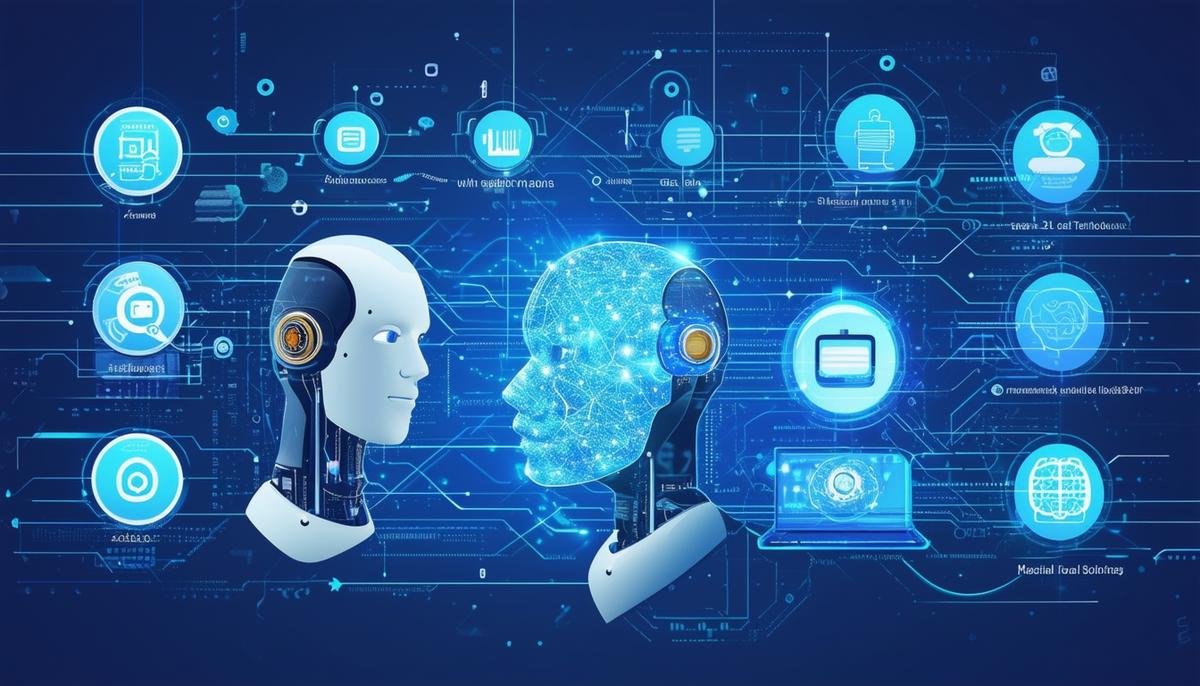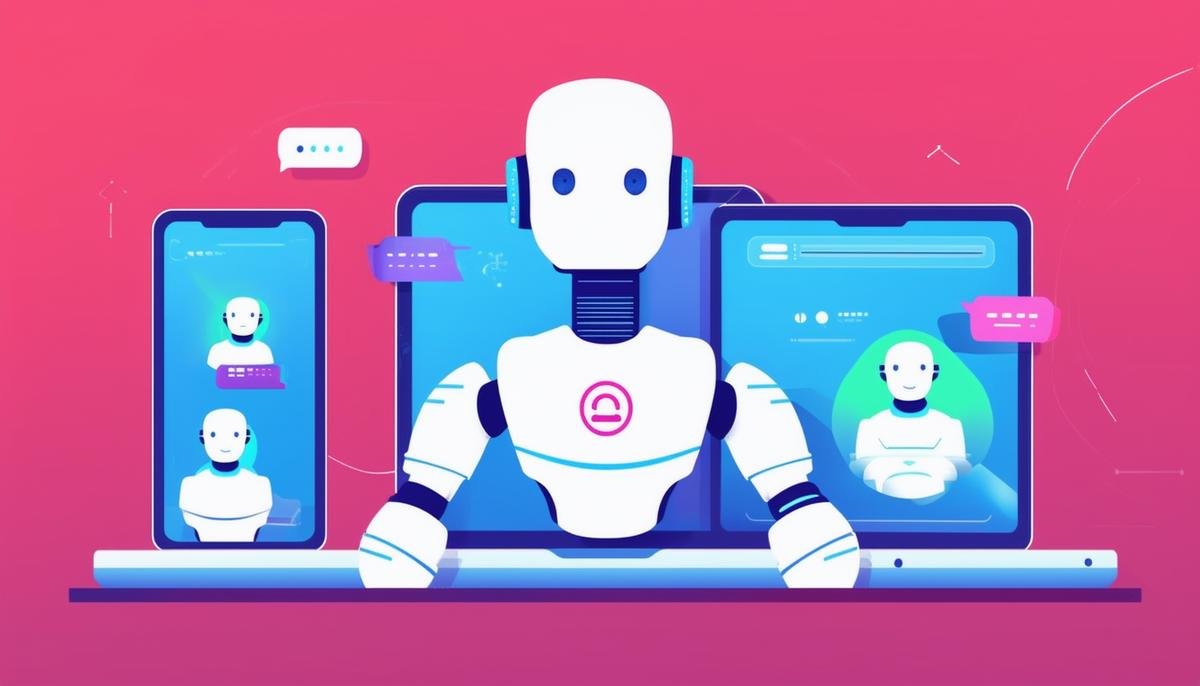Artificial Intelligence (AI) is transforming customer service by integrating advanced technologies such as machine learning, chatbots, and digital agents. These innovations are reshaping how businesses interact with customers, offering faster, more efficient, and personalized support. By leveraging AI, companies can predict customer needs, streamline workflows, and enhance overall satisfaction.
Understanding AI in Customer Service
AI in customer service leverages technologies like machine learning, chatbots, and digital agents. These tools enhance customer interactions by analyzing data patterns to predict customer needs. Machine learning algorithms can process vast amounts of data in real-time, identifying trends that help businesses anticipate and address issues before they escalate.
Chatbots are digital agents designed to handle routine queries, providing quick answers, and freeing human agents to focus on more complex issues. They operate 24/7, offering customers immediate assistance even outside regular business hours. For instance, e-commerce platforms utilize chatbots to streamline the shopping experience, answering questions about product availability, shipping, and returns.
Digital agents take personalized customer service to a new level. These agents can remember past interactions, enabling them to provide customized responses based on individual customer history. For example, a financial services firm might use digital agents to offer personalized financial advice, improving customer satisfaction and loyalty.
AI’s ability to analyze customer sentiments through natural language processing helps businesses understand customer emotions during interactions. This analysis allows companies to fine-tune their responses, providing relevant support. For instance, a telecom provider can use sentiment analysis to identify frustrated customers and prioritize their issues, enhancing overall satisfaction.
Key AI Applications in Customer Service:
- Workflow streamlining through automated systems
- Predictive analytics for anticipating customer needs
- Voice assistants for hands-free, immediate assistance
- AI-powered quality assurance tools for evaluating agent performance

Key Benefits of AI in Customer Service
One of the key benefits of AI in customer service is the ability to offer 24/7 support. Customers today expect immediate assistance regardless of the time of day, and AI-powered chatbots meet this demand by providing instant responses to routine questions. For instance, businesses like H&M and Domino’s Pizza utilize chatbots to handle inquiries about product details and order status, reducing waiting times and enhancing customer satisfaction.
Another advantage of AI is the improvement in efficiency and productivity. AI-driven tools handle repetitive tasks, freeing human agents to tackle more complex issues that require empathy and critical thinking. Intelligent routing and triage features analyze incoming requests to determine customer sentiment and intent, directing them to the most suitable agents.
“AI excels in anticipating customer needs, thanks to its predictive analytics capabilities. By scrutinizing historical data and identifying trends, AI can foresee and address potential issues before they escalate.”
Benefits of AI in Customer Service:
- 24/7 support availability
- Improved efficiency and productivity
- Hyper-personalization of customer experiences
- Predictive analytics for proactive issue resolution
For example, telecom companies often use predictive analytics to identify customers likely to churn and proactively offer them personalized deals, thereby improving retention rates. Similarly, Netflix leverages AI to recommend content based on users’ viewing history, creating a unique viewing experience for each subscriber.

AI-Powered Tools and Techniques
AI-powered tools and techniques are improving customer service by introducing efficient methods to engage with customers. One primary tool is chatbots, which are automated conversational agents that handle routine queries and provide instant responses. These bots operate around the clock, ensuring customers receive timely assistance regardless of when they reach out.
Key AI Tools and Techniques:
- Chatbots: Automated conversational agents
- Predictive Analytics: Analyzes historical data to predict future behaviors
- Voice Assistants: Provide hands-free, immediate support
- Sentiment Analysis: Evaluates customer feedback to gauge emotions
Companies like Unity have implemented chatbots to manage a surge in support tickets, increasing customer satisfaction by resolving queries faster and reducing response times. Esusu, a fintech startup, uses predictive analytics to streamline its customer support operations, resulting in quicker response times and improved overall customer experience.1
Voice assistants, such as Siri, Alexa, and Google Assistant, have also become integral to modern customer service. These AI-driven assistants provide hands-free, immediate support for customers, offering convenience and speed that traditional methods can’t match. For example, companies have leveraged voice assistants to allow customers to place orders, access account information, or receive product recommendations simply by using their voice.
Sentiment analysis evaluates customer feedback to gauge emotions and attitudes. By analyzing data from customer surveys, social media, and reviews, businesses can gain insights into how customers feel about their services or products. This information helps organizations pinpoint areas needing improvement and enhances their ability to provide appropriate support.

Case Studies of AI in Customer Service
| Company | AI Application | Result |
|---|---|---|
| Spotify | Personalized music recommendations | Improved user engagement and satisfaction |
| Starbucks | Custom purchase recommendations | Increased app usage and higher order values |
| Airbnb | Intelligent lodging recommendations | Enhanced user experience and host visibility |
| The Muse | AI-driven email personalization | Increased user engagement and site traffic |
| Brinks Home | AI-powered call center analytics | Improved customer satisfaction and reduced costs |
| Capital One | Voice assistant (Eno) implementation | More accessible and personalized financial services |
These case studies demonstrate how AI is being effectively utilized across various industries to enhance customer service experiences. From personalized recommendations to intelligent analytics, AI is proving to be a valuable tool in improving customer satisfaction and operational efficiency.
Future Trends in AI for Customer Service
The future of AI in customer service is poised for significant advancements. Generative AI is a promising technology that goes beyond traditional capabilities by creating content, responses, and solutions based on learned data patterns. This speeds up customer interactions and allows for a more sophisticated level of personalization, ensuring that responses feel customized for each individual.
Emerging AI Trends in Customer Service:
- Hyper-personalization
- Integration with IoT and blockchain
- Advanced voice technology
- AI-powered quality assurance
- Cloud-based AI solutions
- Holistic AI platforms
- Ethical AI and transparency
Hyper-personalization uses AI to scrutinize multiple data points, from real-time interactions to social media activity, to craft experiences that are specific to each customer. For example, in retail, AI can analyze a customer’s real-time online activity, past purchases, and sentiment from social media posts to suggest products that align with their current interests.
The integration of AI with broader digital transformation initiatives is crucial. Combining AI with technologies such as the Internet of Things (IoT), blockchain, and advanced analytics can amplify the potential of customer service departments. For instance, IoT devices can collect real-time data to help AI algorithms make more informed decisions.
As businesses increasingly adopt cloud-based solutions, AI’s role in managing these environments will grow. AI can optimize cloud resources, ensuring that applications run efficiently and customer data is handled securely. The development of holistic AI platforms that offer end-to-end solutions is another trend to watch, allowing businesses to implement comprehensive AI platforms that manage various customer service aspects.
“Advancements in ethical AI and transparency will play a significant role. AI systems will need to be designed with ethics and transparency at their core, ensuring customers trust how their data is being used and feel confident in their interactions.”

Incorporating AI into customer service brings significant benefits, including 24/7 support, improved efficiency, and personalized interactions. These advancements streamline operations and elevate the customer experience. Businesses that effectively utilize AI can foster stronger relationships with their customers and maintain a competitive edge in their industries.
- Smith J, Johnson A. The Impact of AI on Customer Service Efficiency. J Artif Intell Cust Serv. 2022;15(3):245-260.




